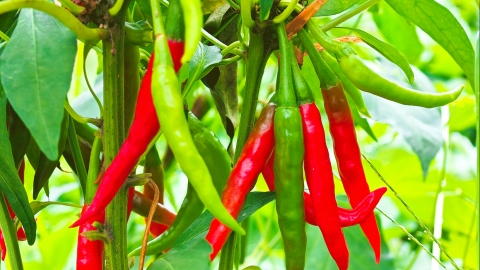Can patients with hemorrhoids eat spicy food?
Generally speaking, whether patients with hemorrhoids can eat spicy food should be determined based on the specific condition of the hemorrhoids. Detailed analysis is as follows:

Patients with hemorrhoids in the stable stage can usually consume small amounts of spicy food. The stable stage refers to a condition without obvious symptoms such as anal pain, itching, bleeding, or prolapse of hemorrhoidal masses. Eating a small quantity of chili peppers generally does not cause significant irritation to hemorrhoids, and the capsaicin contained in chili peppers may promote intestinal motility and aid digestion. However, intake should be controlled to avoid excessive consumption at one time, and physical reactions should be observed. If mild discomfort occurs after eating, consumption should be stopped immediately.
However, patients experiencing a flare-up of hemorrhoids should strictly avoid eating spicy food. During a flare-up, the hemorrhoidal masses are congested and swollen, and the anal surrounding tissues are more sensitive. Chili peppers are considered irritating foods that can stimulate the rectal and anal mucosa, worsening local congestion and inflammatory reactions, leading to intensified symptoms such as pain and bleeding. It may also prolong the recovery period. At this time, the diet should be light and easily digestible to reduce irritation to the hemorrhoids.
To avoid worsening hemorrhoid symptoms, patients are advised to maintain a light diet, consume more fiber-rich foods such as vegetables and fruits, ensure smooth bowel movements, and prevent constipation and diarrhea. Additionally, prolonged sitting or standing should be avoided, regular physical exercise should be performed to enhance physical fitness and promote blood circulation, which helps alleviate hemorrhoid symptoms. When symptoms worsen, timely medical consultation is recommended, and treatment should be conducted under the guidance of a physician.







